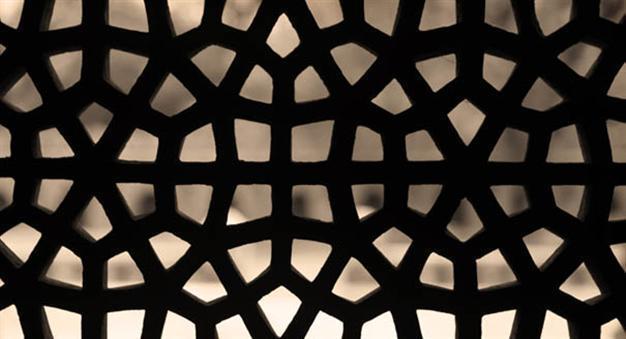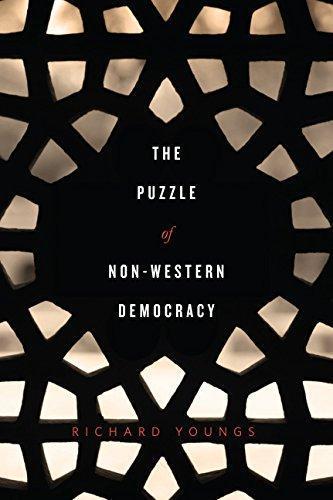In July 2014, Hungarian Prime Minister Viktor Orban said he wanted to abandon liberal democracy in favor of an “illiberal state.” In a widely reported speech, he cited Russia, Turkey and China as examples of “successful” model nations, “none of which is liberal and some of which aren’t even democracies.” Accordingly, Orban has cracked down on civil society, filled the judiciary and independent institutions with cronies, tightened control over the media, and changed election rules to help him retain his grip on parliament. He remains hugely popular in EU member Hungary, winning his third term in power in 2014 with 45 percent of the vote. The comparisons with Turkey are obvious but hardly unique.

At least there is something honest about Orban - he is unapologetic about his authoritarianism and does not disingenuously try to dress it up in the language of liberal rights. In the end, his Hungary is just one example of the rising tide of “illiberal democracy” across the world, led by popular autocrats with little regard for the rule of law or civil liberties. Not so long ago, Francis Fukuyama was declaring the End of History after the end of the Cold War, predicting that liberal democracy would spread irresistibly across the world in a benign wave. Today, liberal teleologists are having to grapple with the reality that things aren’t so simple.
“The Puzzle of Non-Western Democracy” by Richard Youngs, a senior associate at Carnegie Europe, was prompted by the growing realization of the uncertainty of democracy’s global future. “More searching questions are being asked of democracy’s performance than has been the case for many years,” Youngs writes. “It is sobering to see how a debate about the scale of democratic recession has effaced previous expectations that the community of democratic nations would incrementally expand in number.” It is not only the illiberalism of young democracies that puts democracy in danger, established democracies are creaking under the strain of unexpected challenges. “Western liberal democracy in North America and Europe is beset by problems and less able to stand as an unblemished beacon to the world,” writes Youngs. “With many Western democracies underperforming politically and economically, it is harder to maintain that their institutional model is naturally superior.” Love-ins with
anti-democratic strong-men, supposedly based on “realism,” also do far more damage to the West’s moral authority
than most people realize.
In the book, Youngs recognizes the need for reforms to shake liberal democracy out of its stupor. But he also tries to set robust criteria to ensure that democratic quality is not damaged in the process: The search for forms of democratic variation should enrich liberal democracy, not bowdlerize it. “My overarching argument holds that the search for variety in democratic forms is valid. The need to revitalize democracy is essential,” Youngs writes. “However, when it comes to improving the quality of democracy worldwide, there are limits to the usefulness of the non-Western concept.” Efforts should not end up legitimizing illiberalism or semi-authoritarianism.
Alas, that is sometimes where the search for “democratic variation” leads. Arguments for non-Western democracy all too often cross the line into essentialism, assuming that certain values are intrinsic to given cultures and not likely to evolve. The universality of liberal democracy is disputed with the claim that some cultures are not compatible with its core tenets and that such cultural identities must be preserved and respected. Regional specificity is said to provide a legitimizing force that universalism does not. “The desire for some form of ownership of political ideals - even if only vaguely formulated - means that many would feel more enthusiastic about democracy if it could be presented as developing in a way that is ‘Arab’ or ‘African’ or ‘Asian,’” Youngs suggests. That point certainly applies to Turkey, where a majoritarian government uses deeply populist language to denounce its rivals as “non-native” and “non-national,” and seeks to promote a “Turkish-style presidency,” (essentially meaning even more centralized power and fewer checks and balances).
Youngs argues that democracy “should not be framed as one value that competes with ‘local values,’ but rather a framework that allows those other values and local specificities to flourish.” But he remains vague about what that means in practice. Still, as a DC think-tanker his belief that these things are decided in high-minded conferences and earnest thinkpieces is perhaps understandable. As he writes, “for someone involved frequently in democracy-related meetings, consultations, workshops, and conferences, it is striking how the question [of non- illiberal democracy] has gradually assumed a higher profile.” In a fast-changing global order, “competitive debate over divergent points of view and difference will be needed as part of democracy’s very essence.”
Actually, it’s doubtful whether such chin-stroking will actually decide anything. The success or failure of liberal democracy - or that of any other form of governance in the 21st century - will not be thanks to winning ideas at think tank panels. Rather it will be a result of a cocktail of socio-economic conditions, technological changes, local institutional inheritances, and historical memories. That is also true for the West, where the crumbling of older social structures will inevitably result in novel political forms. These are unlikely to be a continuation of classic 20th century democratic party politics. Youngs is aware of that, but his hope that emerging political arrangements will be a product of rational debate is probably too optimistic.
 ‘The Puzzle of Non-Western Democracy’ by Richard Youngs (Carnegie Endowment for International Peace, 213 pages, $20)
‘The Puzzle of Non-Western Democracy’ by Richard Youngs (Carnegie Endowment for International Peace, 213 pages, $20) At least there is something honest about Orban - he is unapologetic about his authoritarianism and does not disingenuously try to dress it up in the language of liberal rights. In the end, his Hungary is just one example of the rising tide of “illiberal democracy” across the world, led by popular autocrats with little regard for the rule of law or civil liberties. Not so long ago, Francis Fukuyama was declaring the End of History after the end of the Cold War, predicting that liberal democracy would spread irresistibly across the world in a benign wave. Today, liberal teleologists are having to grapple with the reality that things aren’t so simple.
At least there is something honest about Orban - he is unapologetic about his authoritarianism and does not disingenuously try to dress it up in the language of liberal rights. In the end, his Hungary is just one example of the rising tide of “illiberal democracy” across the world, led by popular autocrats with little regard for the rule of law or civil liberties. Not so long ago, Francis Fukuyama was declaring the End of History after the end of the Cold War, predicting that liberal democracy would spread irresistibly across the world in a benign wave. Today, liberal teleologists are having to grapple with the reality that things aren’t so simple.